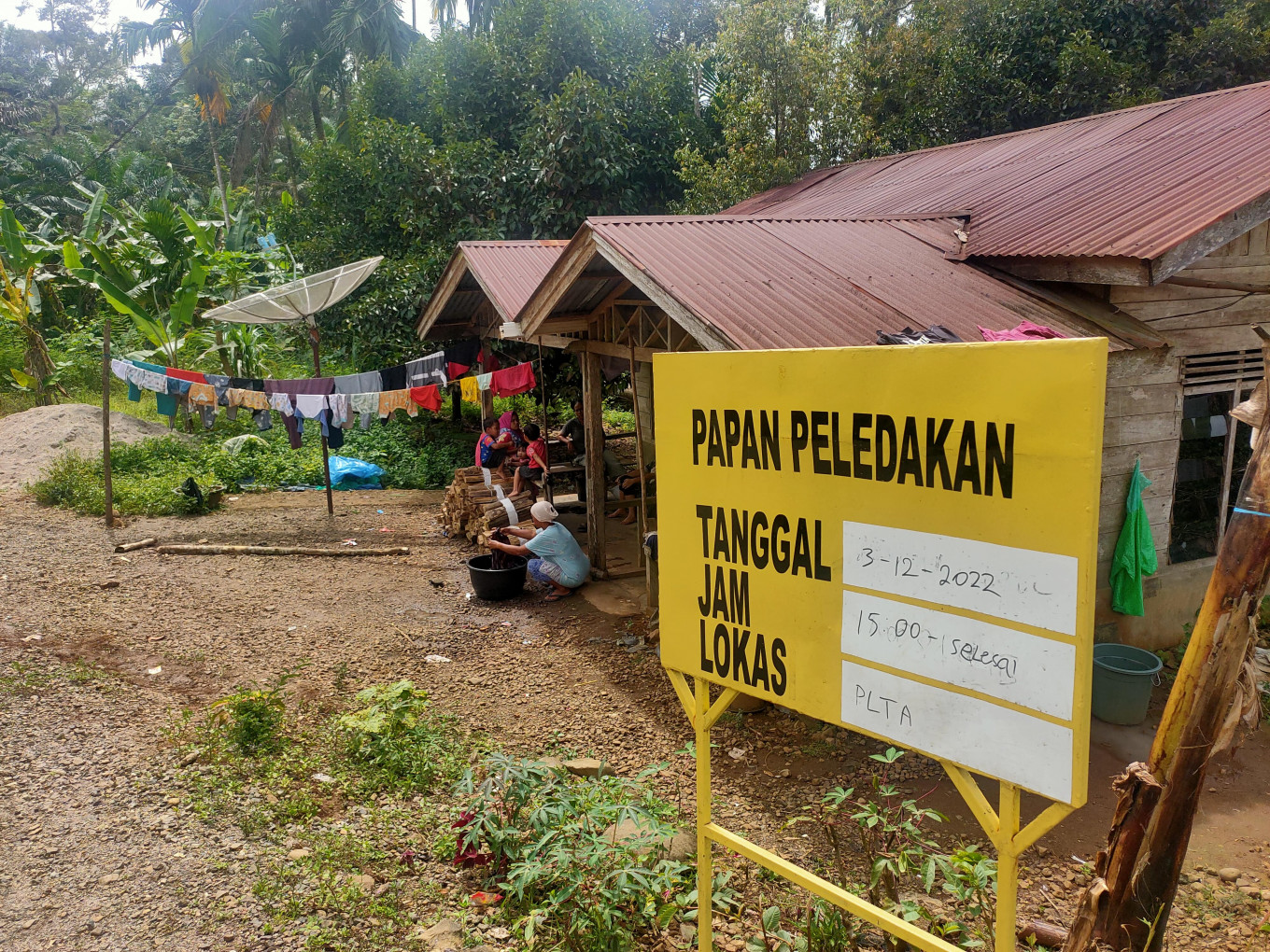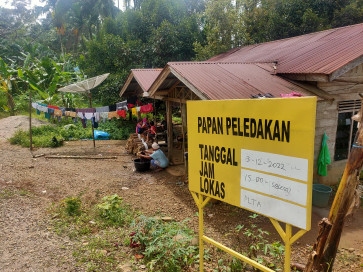Popular Reads
Top Results
Can't find what you're looking for?
View all search resultsPopular Reads
Top Results
Can't find what you're looking for?
View all search resultsPoor planning causes PLN to pay more for Batang Toru hydropower plant
The Batang Toru hydropower plant project sounds like a good plan, but deep down it is plagued with poor oversight and a lack of transparency that may hurt PLN.
Change text size
Gift Premium Articles
to Anyone
T
he construction of a hydropower plant in Batang Toru district in South Tapanuli has been causing a global controversy for years as it was built in the habitat of the endangered Tapanuli orangutans. The Jakarta Post joined the Society of Indonesian Environmental Journalists (SIEJ) in collaborative reporting to visit the construction site and nearby villages in December 2022 to get the latest on the development of the project. This is the first part of the report.
On the surface, the Batang Toru hydropower plant project sounds like a good plan. Designed as a peaking power plant, also known as a peaker, for North Sumatra, the 510-megawatt grid will be powered by a water dam, which is aimed to increase the country’s renewable energy capacity.
But poor oversight and lack of transparency surrounding the project left the project in limbo, about six years after the project development had kicked off. Global protests over the encroachment into the Tapanuli orangutan (Pongo tapanuliensis) habitat led the project into financial shambles and an uncertain future.
State-owned electricity monopoly PT PLN is Indonesia’s major force behind the international project, owning 25 percent of PT North Sumatra Hydro Energy (NSHE), a joint-venture company tasked with development and operation of the project. PLN participated through its wholly owned subsidiary PT Pembangkitan Jawa Bali Investasi (PJBI).
Under PLN’s direction, the Chinese government’s state-owned State Development and Investment Corporation (SDIC) subsidiary, SDIC Power, owns around 70 percent of the NSHE’s stake, making it a China-owned project. It is also classified as China’s Belt and Road Initiative (BRI).
The hydropower project was initially set to be completed in 2022 but has been delayed until 2026 as the project faced many setbacks over the course of its construction.
The major constraint came from worldwide protests over its threat to the habitat of the Tapanuli orangutan, which the International Union for Conservation of Nature (IUCN) declared critically endangered in 2017, the year when most of the project development began.



















